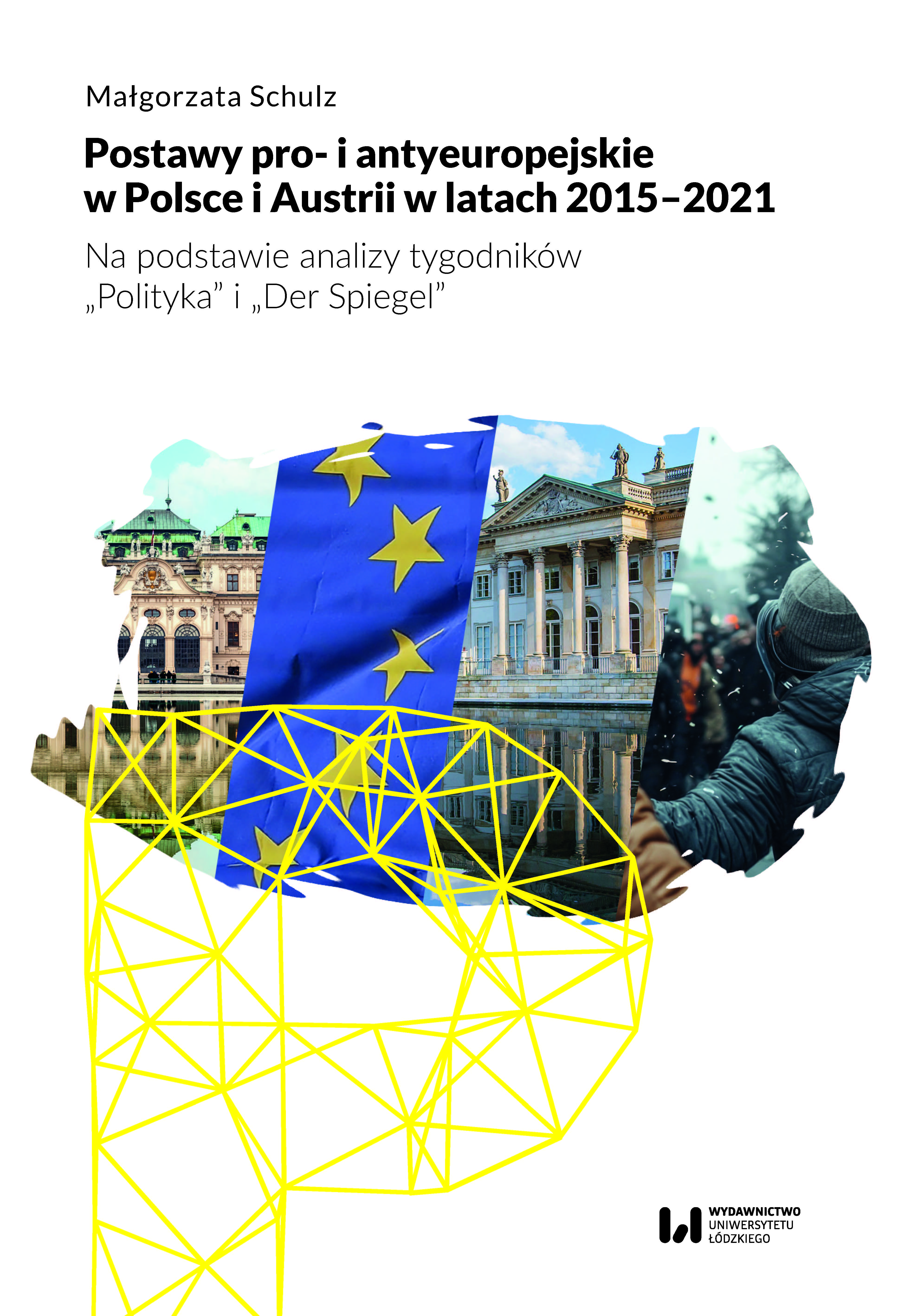Postawy pro- i antyeuropejskie w Polsce i Austrii w latach 2015-2021. Na podstawie analizy tygodników "Polityka" i "Der Spiegel"
Pro- and anti-European attitudes in Poland and Austria in 2015-2021. Based on the analysis of the weekly magazines "Polityka" and "Der Spiegel"
Author(s): Małgorzata Schulz
Subject(s): Politics / Political Sciences, Politics, Social Sciences, Sociology
Published by: Wydawnictwo Uniwersytetu Łódzkiego
Keywords: European Union; pro-European attitudes; anti-European attitudes; Poland; Austria; media; integration
Summary/Abstract: Issues regarding the future of the European Union have become very important, especially in the context of political and social changes across Europe, including in Poland and Austria. The study of pro- and anti-European attitudes is becoming a key area of analysis to understand the dynamics of European societies in the face of political, economic and cultural challenges. The considerations contained in this publication focus on the period from 2015 to 2021. I focus my attention on two important countries: Poland and Austria, which, despite their different histories and experiences, have many common features. By analyzing articles published in the influential weekly magazines "Polityka" in Poland and "Der Spiegel" in Austria, I try to interpret the diverse attitudes of citizens towards the idea of a common Europe. The time caesura I have designated for the purposes of this analysis is not accidental. The year 2015 was a time of change in the Polish government, where Law and Justice gained the largest parliamentary club in the history of the Third Polish Republic. In Austria, in 2017, the Christian Democrat ÖVP won the elections. The key aim of my research is to identify pro- and anti-European trends and to understand the main factors shaping these attitudes. What political, social and economic events influence the perception of the European Union? What are the main narratives in the Polish and Austrian media in the context of European events? I made the answers to these questions the content of the book. Based on C. Gerbner's method of content analysis of media messages, the research focuses on identifying differences and similarities in the approach of political actors to European issues. I also analyze the role of the media in shaping pro- or anti-European attitudes. In the results of the content analysis of the analyzed weekly magazines, I try to show the complexity of citizens' attitudes and their evolution in the period under study. This book is an attempt to answer the question about the shape of the official discourse of parliamentary parties on topics related to European integration and the European Union itself. The analysis is carried out through the prism of two levels: the idea of Europe and the organization of Europe (understood as the organizational structure of the EU and the way it will function in the future).
Series: Uniwersytet Łódzki
- E-ISBN-13: 978-83-8331-544-7
- Print-ISBN-13: 978-83-8331-543-0
- Page Count: 202
- Publication Year: 2024
- Language: Polish
- eBook-PDF
- Table of Content
- Sample-PDF

